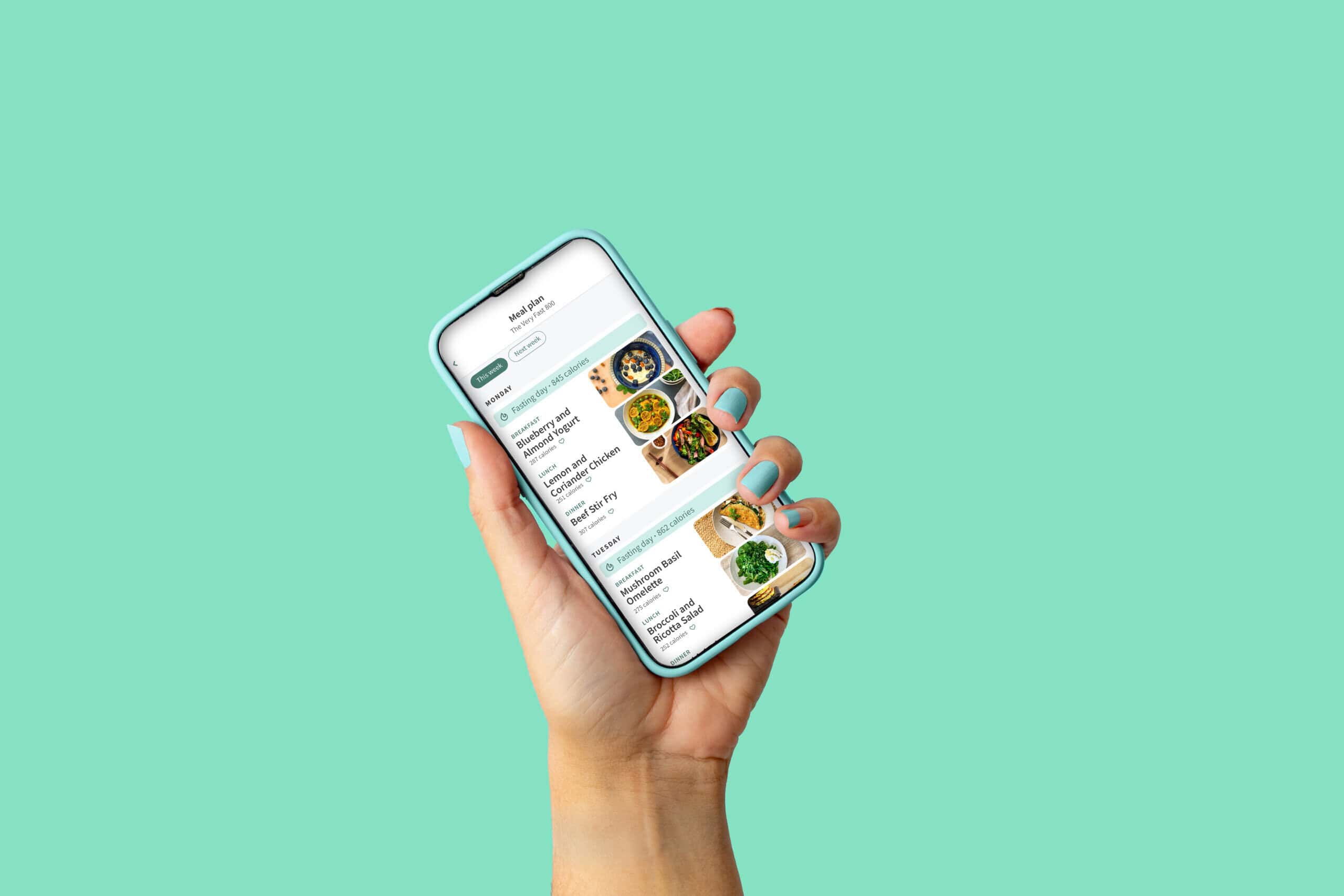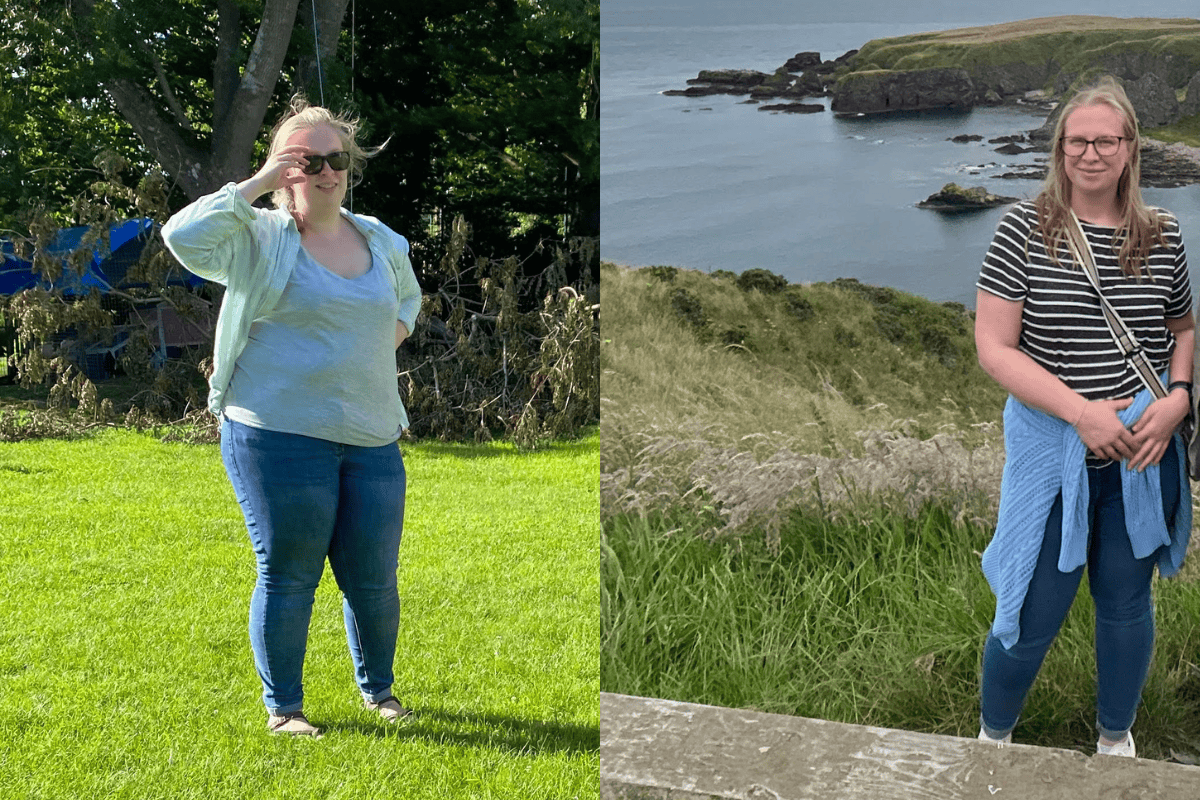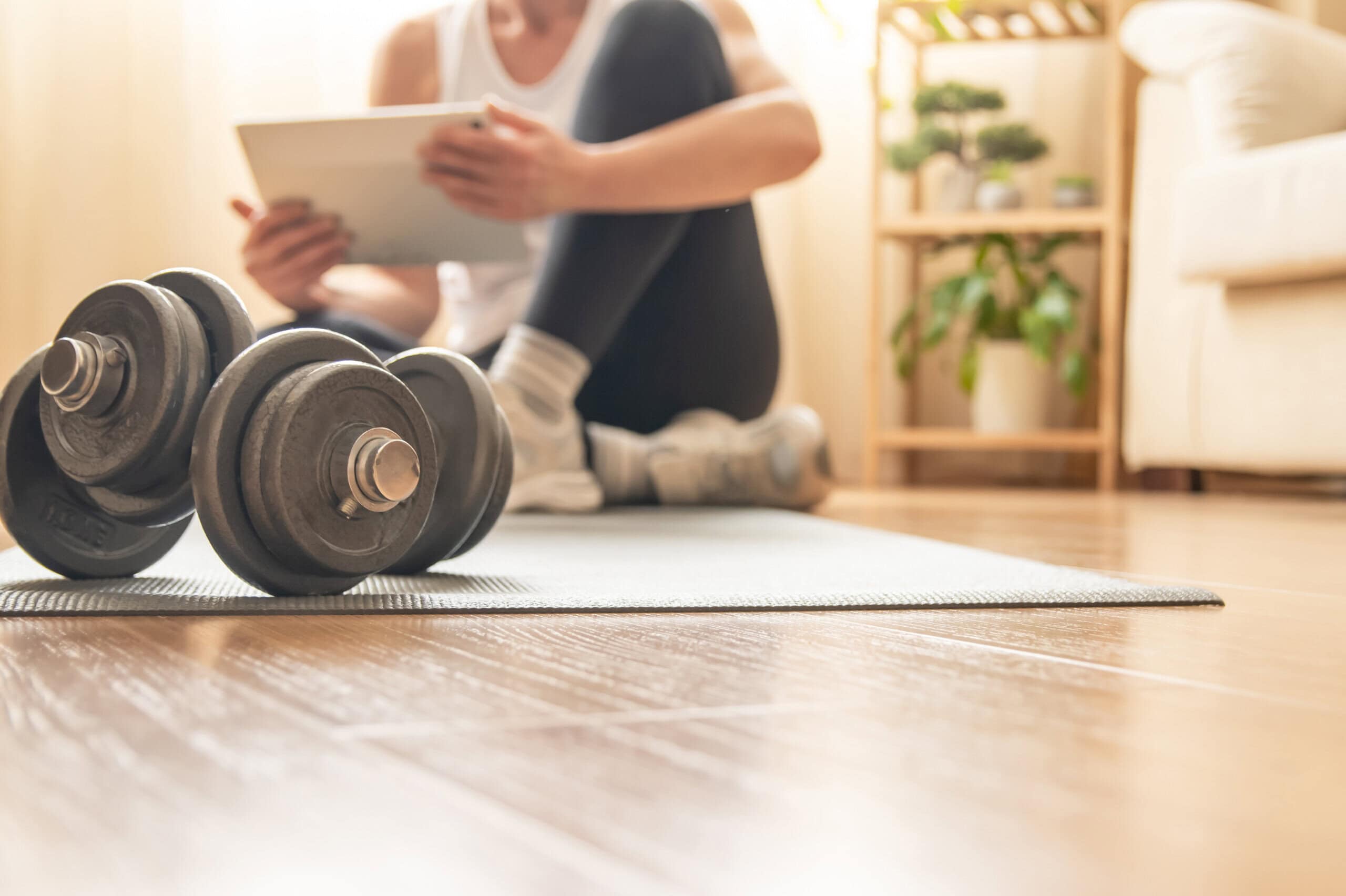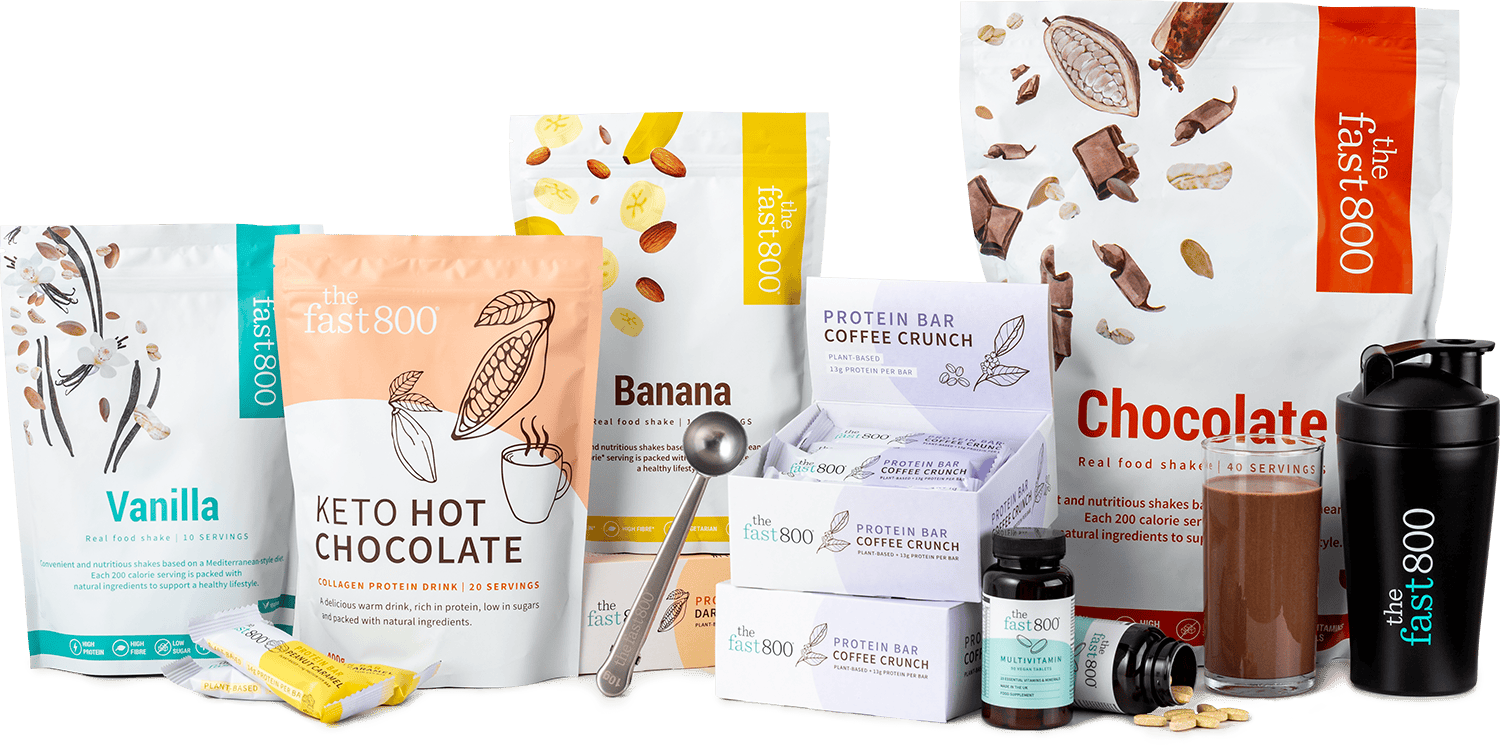The Fast 800 Festive Health Hacks
The end of the year can be a rocky time for many, physically, mentally and emotionally. This, compounded with the availability and temptation of excess food and alcohol, can make for a period that quickly turns into a downward health spiral.
The Fast 800 online programme is designed to empower you with the tools and knowledge to be able to create good habits and make sensible choices long-term. While adhering to fasting days during the festive season may not work for you, there are plenty of other ways you can support your health while still enjoying all the festive celebrations. If you need help with getting started, here’s our festive guide covering the ‘whats’ and ‘hows’ to being your healthiest self this season.
What to Eat
- Mediterranean-style diet: Where possible, choose foods that fit the principles of a moderately low-carb, Mediterranean-style diet most of the time. This will keep your blood sugars stable and your energy levels high this time of year!
- Fibrous vegetables and filling protein: Fill your plate with protein and non-starchy vegetables first, like carrots, broccoli or cauliflower. This helps to limit the available space for that extra Yorkshire pudding or serving of roast potatoes. If you’re vegetarian, find out here how to get enough protein in.
- Whole foods instead of ultra-processed foods: Opt for whole foods whenever possible like vegetables, proteins, full-fat dairy, beans and legumes, hard fruits and berries. You’ll find them much more satisfying than their addictive ultra-processed counterparts, and they’ll keep you fuller for longer.
- Full meals rather than snacks: Focus on full-sized satisfying meals, rather than snacking or grazing, which can quickly lead to eating much more throughout the day than you intended to.
These dishes are perfect to take to your next festive feast:
How to Eat
- Plan ahead: Plan your festive period in advance so you can work events around your meal plan and fasting days. For example, you may want to follow an indulgent dinner party with a low-calorie day to help give your digestive system a break. It also means you can look up restaurant menus in advance or make sure you stock up on on-the-go supplement shakes ahead of busy days.
- Be realistic: Be realistic in what is going to be most sustainable for you. If you’ve been following The Very Fast 800, in the lead up to the festive season, perhaps it’s more reasonable to switch over to The New 5:2 to ensure maximum success and minimum frustrations.
- Try TRE: Use the festive season to hone in on TRE (time-restricted eating) where you fast daily for 12, 14 or 16 hours. This means finishing your evening meal earlier and/or breaking your fast (i.e. eating breakfast) a little later in the day. Not only can this support good metabolic health, but it provides book-ends to your eating window and reduces the likelihood of an all-day graze.
What to Drink
- Choose your alcohol wisely: If you’re out at an event and want to indulge in an alcoholic drink, we recommend opting for a glass of red wine as your drink of choice as it has slightly more health benefits when compared to other alcoholic beverages. For mixers with low-calorie spirits, avoid juice and soft drinks (even the ‘diet’ kinds which contain artificial sweeteners) and instead opt for soda water and fresh berries or a slice of lemon.
- Drink mindfully: If you’re someone who enjoys an alcoholic beverage, it may be unrealistic to put yourself on a “booze ban” for the festive season if you know you’re setting yourself up for failure. Instead, drink mindfully and in moderation by savouring each sip of your drink and following a few of our top tips for drinking mindfully.
- Stay hydrated: It’s advice you’ve likely heard before, but that’s because it’s very good advice: alternate your drinks with water. Alcohol is actually dehydrating (hence the terrible headaches the following day), and often results in increased thirst so it’s easy to keep drinking without realising the extent of your sugar and calorie intake. Having a glass of water between drinks will help quench your thirst to avoid dehydration and slow down your overall alcohol intake.
How to Move
- Reframe your exercise: Rather than using exercise as a punishment for over-indulging or going “off plan”, grab a loved one and do a quick HIIT workout together to remind yourself of how good it feels to move your body.
- Relieve stress with yoga: December can be a stressful month, so why not try exercises that are specifically designed to slow you down and make both your mind and body happier? Yoga is low-impact and is excellent for relieving stress this time of year.
- Incorporate incidental exercise: While we may not have as much free time during the festive season, it’s the ideal time to focus on incidental exercise. Incidental exercise includes taking the stairs rather than an elevator, getting off the bus one stop early and walking the rest of the way, or even doing several trips back and forth from the car with Christmas shopping!
- Exercise at home: If you’re normally someone who exercises in a gym or with equipment, read how our Health Coaches support their fitness goals at home so you can keep up your good work without worrying about gym closures over the festive period.
How to Think
- Practice mindfulness: Practising mindfulness can help to reduce stress, keep you focused and give you some much-needed respite during an often overwhelming time. A short morning meditation is a wonderful addition to your routine at any time of year, but particularly now.
- Eat yourself calm: If you want to support your mindset from the inside, there are plenty of ways you can support your mental health with mood-boosting foods. Read all about how to eat yourself calm here.
- Communicate and seek support: Communicate your intentions to your loved ones and ask that they be supportive during times you’re choosing not to overindulge, while reminding them it doesn’t mean you’re going to have a “fun-free” festive season. You can also seek support in our online Community on The Fast 800 programme with others who are navigating the same health journey as you.
- Take it one day at a time: Focus on one day – or even one meal – at a time. If things go a bit pear-shaped, take it as a learning experience and move on. Health is a long-term game, so rather than giving up if you go backwards, remember that every subsequent small step forwards is one in the right direction.
There’s no need to avoid the festivities this season; just a few simple swaps, additions and changes is the key to sticking to your health goals while also having fun! Sign up for your 7-day free trial of our Programme for helpful tools, meal plans and communities to help get you through this season, a happier and healthier you.











